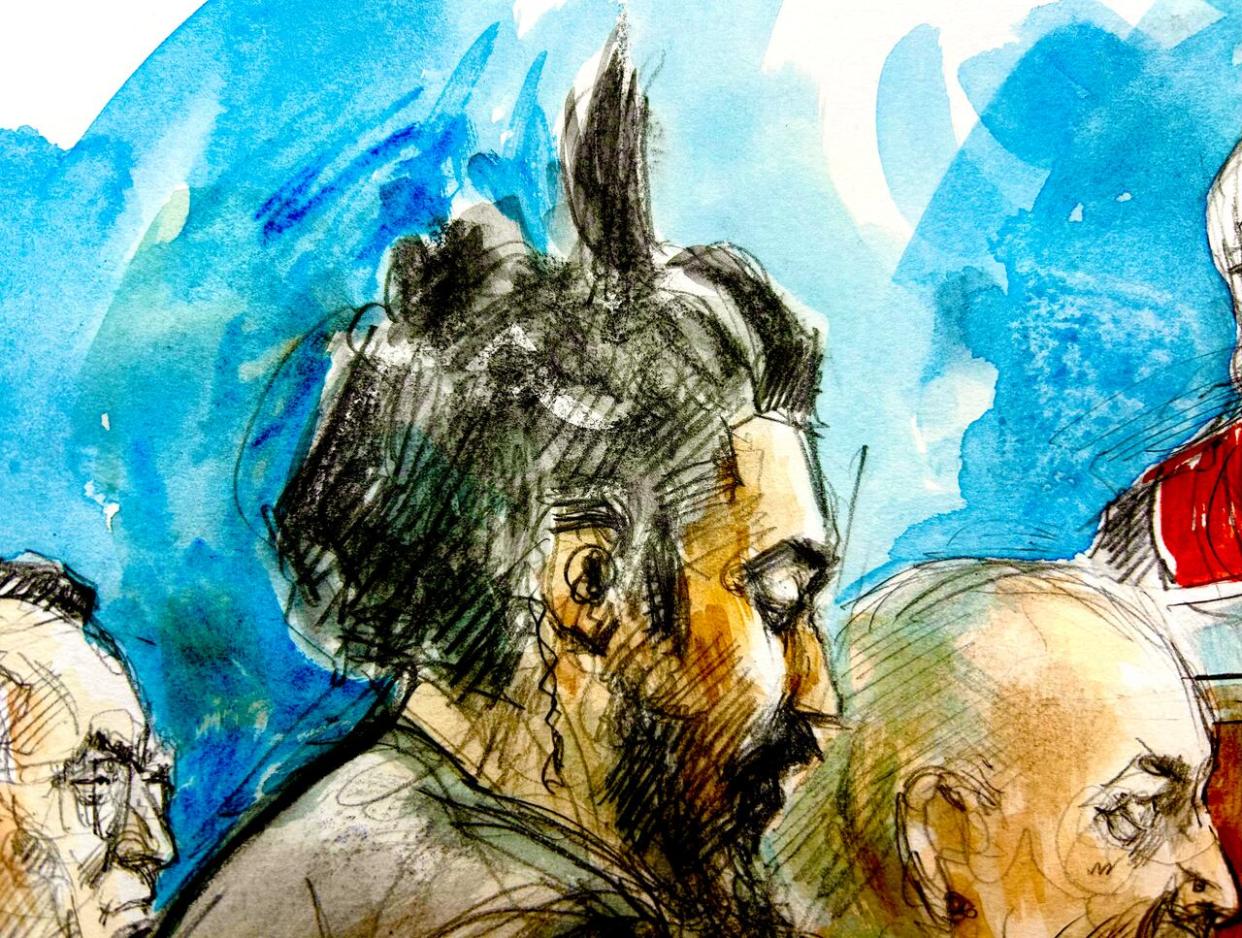Toronto man not criminally responsible for setting woman on fire

A Toronto man has been found not criminally responsible for setting a woman on fire on a public bus in 2022.
Tenzin Norbu was charged with first-degree murder in the death of a woman who was a stranger to him. On June 17, 2022, Norbu used lighter fluid and a lighter to set Nyima Dolma on fire on a TTC bus in downtown Toronto, according to an agreed statement of facts read before the court on Tuesday.
Norbu pleaded not guilty this week, and the Crown and defence had both agreed that he should be found not criminally responsible.
On Tuesday, Superior Court Justice Maureen Forestell concurred, saying that Norbu was suffering from schizophrenia that made him "incapable of appreciating his act was wrong."
Norbu sat alone before the justice as she delivered her verdict, while Dolma's family watched the proceedings by video.
He will now appear at a hearing before the Ontario Review Board, which will determine the hospital where he will be held and what privileges, if any, he'll have there, Forestell said.
The board will put the public's safety first in its decision, she said.
The events of the case

Tenzin Norbu was found not criminally responsible for the death of a woman he set on fire on a TTC bus outside Kipling Station in 2022. (Darek Zdzienicki/CBC)
On June 17, 2022, Norbu got on a TTC bus in downtown Toronto carrying a bag, and approached a woman he did not know, 28-year-old Nyima Dolma, according to the court's agreed statement of facts.
He asked her if she was Tibetan, and when she said she was, he reached into his bag for a jar of lighter fluid, which he then poured on Dolma before using a lighter to ignite her clothes, the court documents said. Dolma's body was badly burned and she suffered injuries from smoke inhalation.
She was taken to hospital, where she died 18 days later.
Victim was a compassionate soul, sister says
In a victim impact statement submitted to the court, Dolma's sister, Dawa Tsamchoe, described Dolma as a compassionate soul and dedicated nurse who was "committed to serving those in need."
"We can only pray, for her soul to finally find peace, and for her memory to be honoured," Tsamchoe wrote.
Justice Forestell said Tuesday that the lighter fluid Norbu had on him supported the argument he had planned to kill the woman that day.
In her decision, Forestell cited earlier testimony from forensic psychiatrist Dr. Alina Iosif, who had told the court she had assessed Norbu, and concluded he was suffering from schizophrenia when he set Dolma on fire.

Nyima Dolma, 28, died of her injuries 18 days after Tenzin Norbu set her on fire in 2022. The two did not know each other. On Tuesday, Norbu was found not criminally responsible for her death. (Toronto Police Service)
Iosif based her assessment on sessions with Norbu, as well as his medical records, and witness and video evidence from his 2022 attack, the court said.
Iosif testified that Norbu had been misdiagnosed with depression in the years before the bus attack.
Justice Forestell said she was satisfied that he was actively psychotic when he killed Dolma.
At the time of the attack, Norbu was under the belief that members of the Tibetan community hated him and that Dolma was recording him on video, Forestell told the court Tuesday.
Speaking outside the courthouse after the decision, Norbu's lawyer, Loui Dallas, told reporters the case was a sad situation for all parties, but the court's ruling was appropriate.
"He's a very sick man, our client," said Dallas. "He doesn't belong in a prison. He belongs in a hospital, with the hope that one day he no longer poses a significant threat to society."


